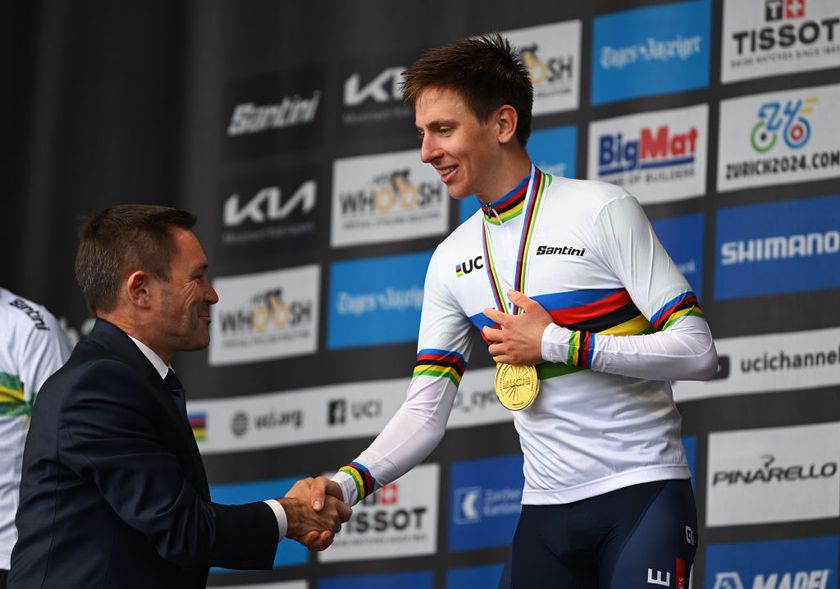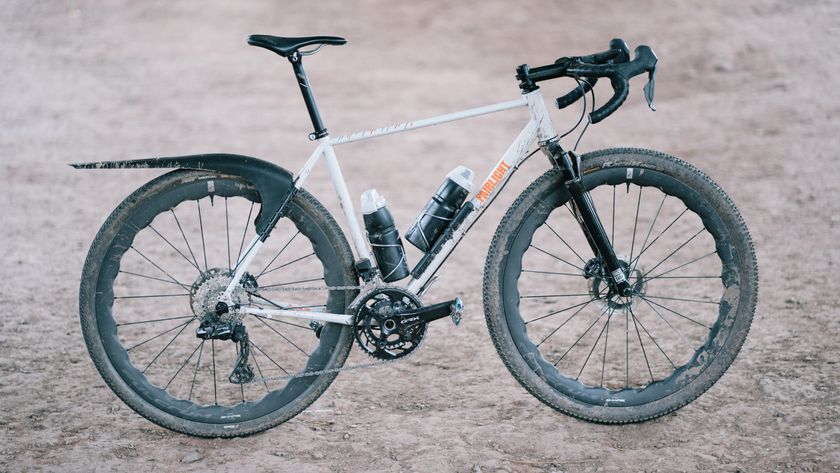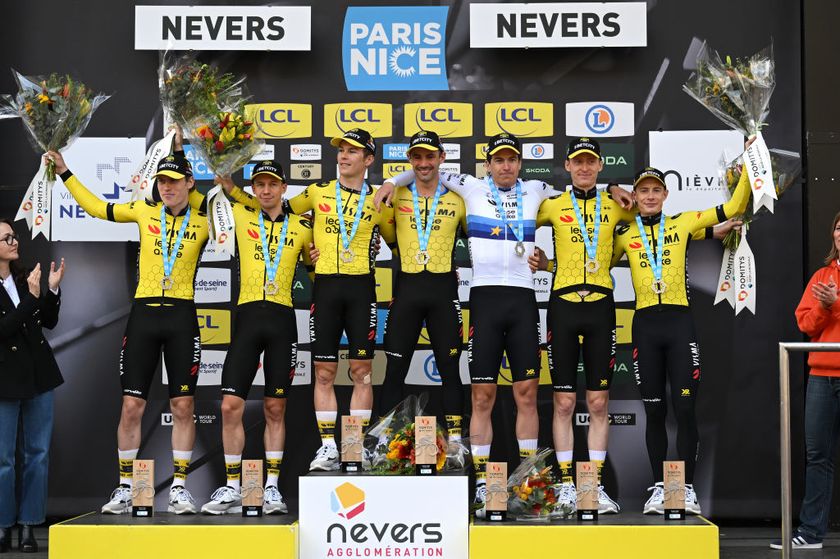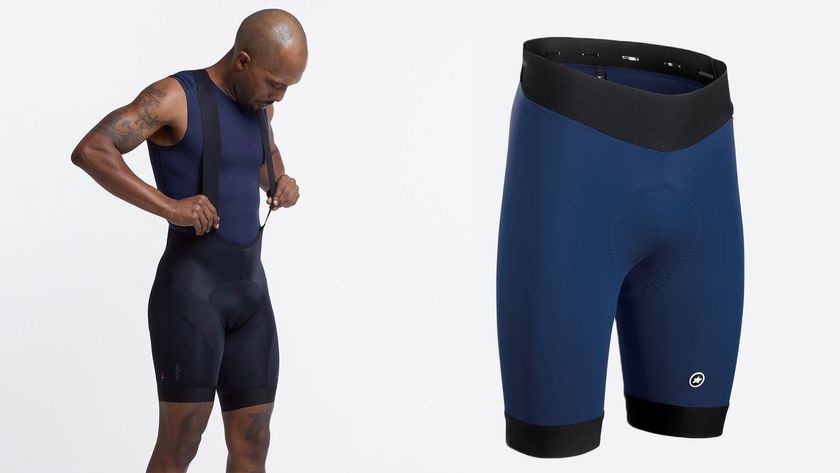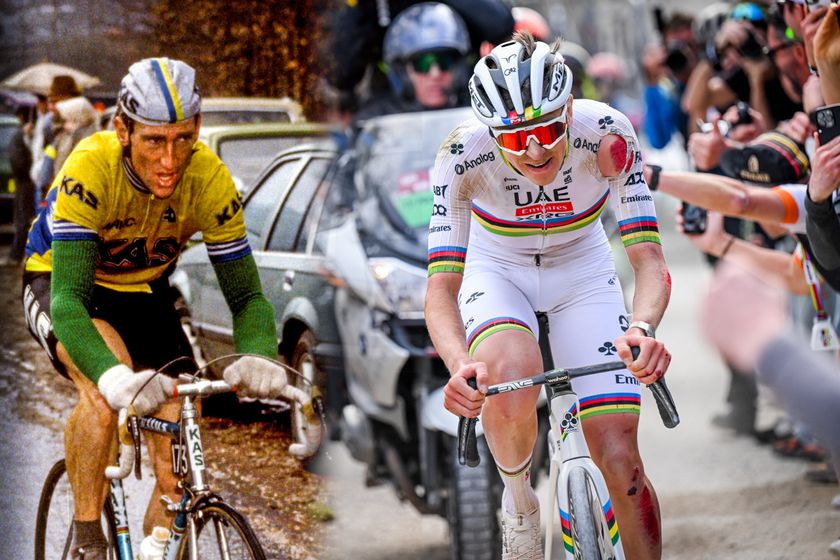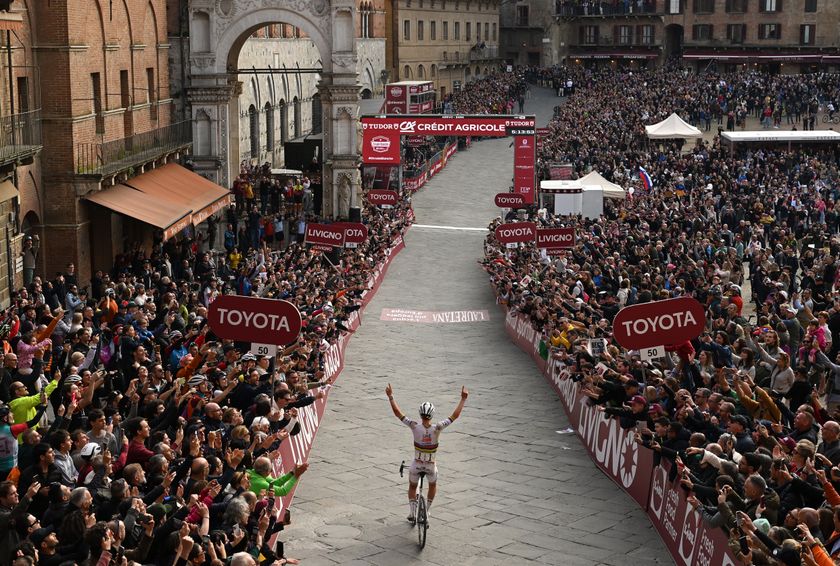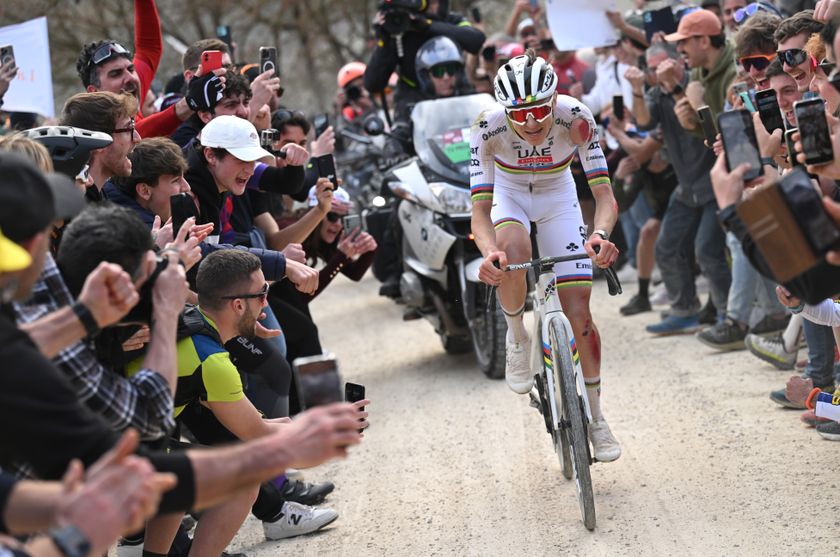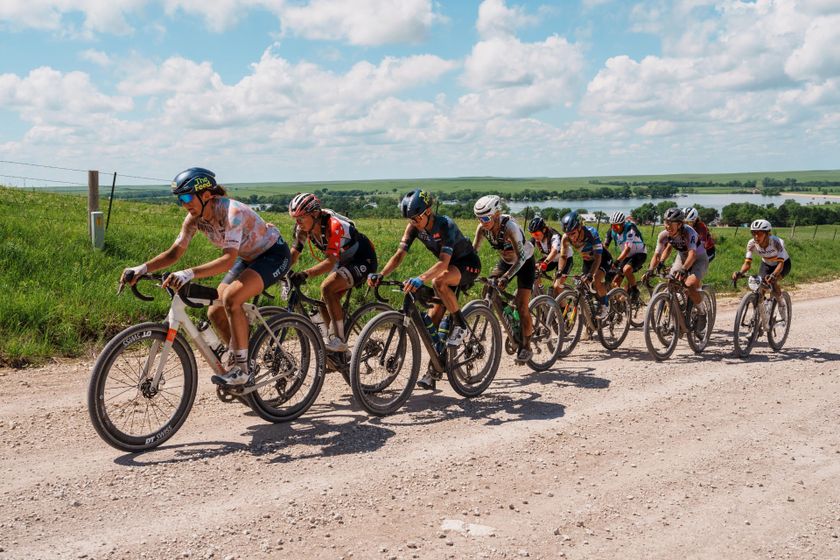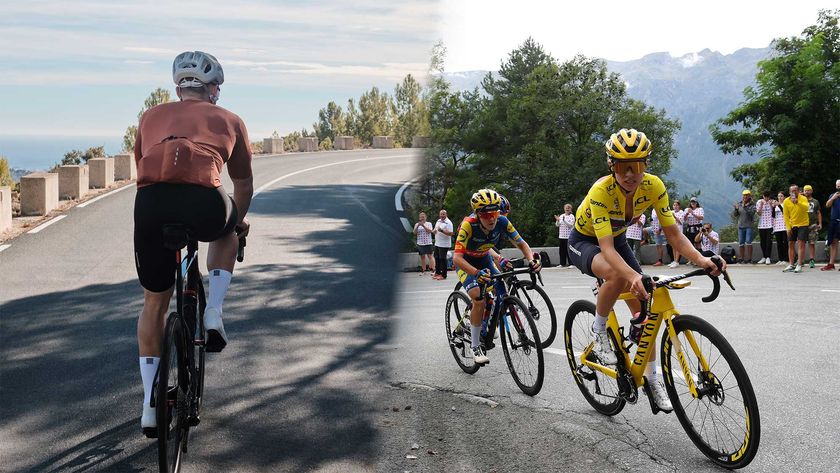Nibali pulls off a Giro d'Italia resurrection - Analysis
Sicilian makes one of the greatest Grand Tour comebacks to win in Turin





In Italy they are describing Vincenzo Nibali's come back and Giro d'Italia victory as one of the greatest comebacks in professional cycling. It has been called a resurrection, ‘Dal buio al trionfo' – from the dark to victory, as Gazzetta dello Sport described on Sunday morning, giving Nibali the top half of the front page of their sports newspaper for a second consecutive day.
Gazzetta dello Sport recalled how Fausto Coppi snatched victor in the 1953 race with an attack on the Stelvio. Hugo Koblet crashed and punctured, allowing Coppi to triumph. In 1959 Charly Gaul won after Jacques Anquetil cracked and the Piccolo San Bernando climb; In 1996 Olano cracked on the Mortirolo, allowing Pavel Tonkov to win the maglia rosa.
The 99-year history of the Giro d'Italia is littered with similar stories of attacks, crashes and riders who cracked, especially during the final week and in the toughest mountain stages.
Nibali's second Giro d'Italia victory will perhaps be remembered as his best because few Grand Tours end so dramatically, with such a swing from defeat to victory in the course of two stages. It was a two-move; two-stage checkmate that captured the attention of all of Italy.
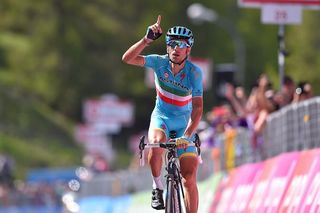
We often bemoan modern racing as lacking the unexpected, with modern technology and sports physiology reducing the chance of a sudden turn of events. Yet again Nibali has reminded us why Grand Tours are so special in our sport. The final winner is the best and most consistent rider over the whole three weeks and 21 stages. Nibali raced for 86 hours, 32 minutes and 49 seconds in this year's corsa rosa. He beat Esteban Chaves (Orica-GreenEdge) by just 52 seconds, with Alejandro Valverde (Movistar) by 1:17.
Of course those numbers don't tell the real story because Nibali's resurrection is much bigger and his return to the top come from a much deeper place.
A week ago he had lost his bite and was in ruins after losing 37 second on the big Dolomite stage to Corvara and then close to two minutes in the mountain time trial to Alpe di Siusi.
Get The Leadout Newsletter
The latest race content, interviews, features, reviews and expert buying guides, direct to your inbox!
When he lost a further 1:47 on the relatively easy mountain stag to Andalo, Nibali seemed close to throwing in the towel and even quitting the race, suggesting something wasn't right with his form. Every detail of his riding was scrutinised, from his change in crank length, to his goals and motivation. Blood tests were done to try to understand if a virus was to blame for an apparent loss of 20 watts of power. Nibali and the Astana team only revealed after victory in Turin that he had suffered stomach problems that day.
More on this story:
Giro d’Italia stage 21 highlights – Video
Giro d’Italia state 21 – Finish line quotes
Astana team manager Alexander Vinokourov carefully avoided criticising Nibali despite his problems and rallied his team by calling them to fight on all the way to Turin. Vinokourov left the race and Nibali seemed almost relieved to have shed the huge expectation from his shoulders. Some of the Italian media turned on him but the tifosi continued to call his name and cheer him on.
Nibali refused to quit the Giro and let his thoughts turn the Tour de France or Rio Olympics, some how feeling he could still turn his Giro d'Italia around as the two giant stages in the Alps loomed. He is know for his Sicilian pride and seemed to simply follow his instinct, ignoring the expectations outside of the Astana team bus.
Destiny also stepped in when Steven Kruijswijk (LottoNL-Jumbo) crashed spectacularly on the descent of the Colle dell'Agnello. Nibali revealed he had forced the pace on the climb and the descent after seeing the Dutchman in trouble. The race was well and truly on at the point and so there was no gifts in this Grand Tour. Nibali went on to win the stage. He suddenly believed in his own resurrection and completed his masterpiece by dropping Chaves on the Colle della Lombarda
"Believing until the very end was the secret of this victory," Nibali explained.
"It was a very hard Giro d'Italia, in so many ways. I started the weight of being the favourite on my shoulders and that affected my race. Perhaps I'd convinced myself that I was going to dominate the race as I did in 2013. I always expect a lot from myself and that lead me to make mistakes. I wasn't as focused as I should have been.
"It was only when I thought I'd almost lost the race that I managed to off load all the pressure that was weighing me down. I told myself that there was not a big difference between winning or losing but that I wasn't going to give up."
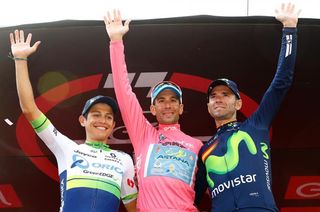
Watch 2016 Giro d'Italia stage 21 highlights video
To subscribe to the Cyclingnews video channel, please click here.

Stephen is one of the most experienced member of the Cyclingnews team, having reported on professional cycling since 1994. He has been Head of News at Cyclingnews since 2022, before which he held the position of European editor since 2012 and previously worked for Reuters, Shift Active Media, and CyclingWeekly, among other publications.
